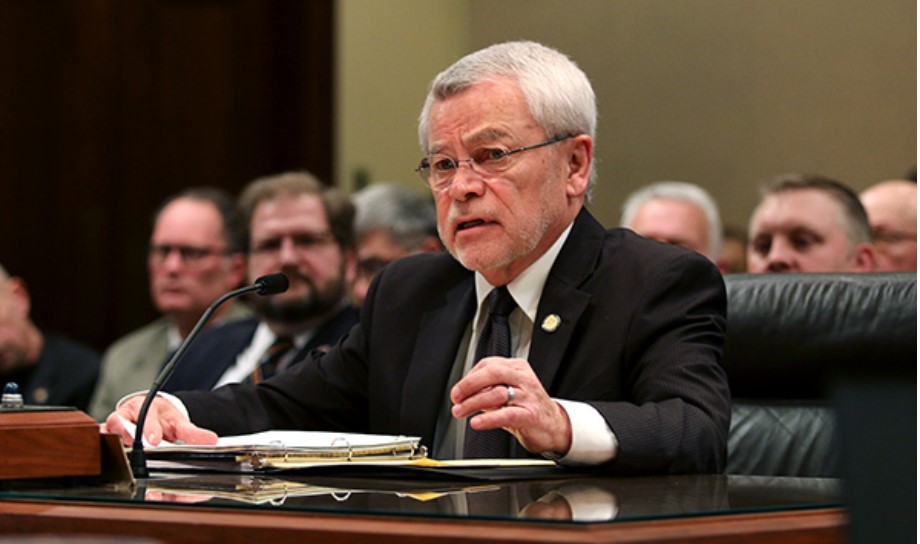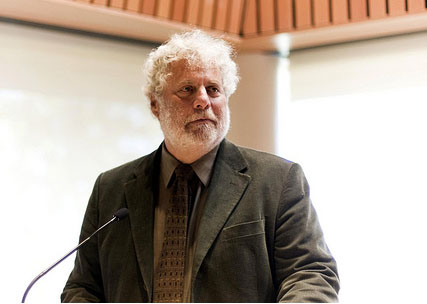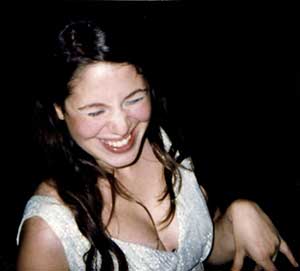Meet Steve Halloran, State Senator for the 33rd District of Nebraka. Objectively speaking, Halloran can be sufficiently described as a 75-year-old fossil, a misogynistic pettifogger, and a walking and talking colostomy bag who slips and saunters around Lincoln with the slimy telltale mien of an impotent man popping Cialis every hour in his futile attempt to revive his unresponsive and forever diminutive chorizo. When not introducing measures ensuring that hate groups drown out liberal voices or using “Nebraska nice” to defend fascism, this detestable autocrat can be seen in photographs smiling like a squealing pig while standing next to Nazis. He is so rigidly opposed to the rights of women that, in 2017, he was one of only three senators to vote against a measure that would have required schools to build accommodations that would help mothers breastfeed their children. And he is so hateful of working stiffs that, in March 2019, he opposed increasing the minimum wage for tipped workers.
Halloran’s hideous combination of misogyny and stupidity is so deeply ingrained into his evil reptilian core that he actually had the temerity to declare last year that rape did not induce pregnancy: “No one’s forcing anyone to be pregnant. Pregnancy’s a voluntary act between two consenting adults.”
Indeed, rape seems to be the only topic that fuels Halloran’s diseased and dimwitted imagination.
But on Monday morning, as the Nebraska State Senate was discussing Legislative Bill 441, this baleful man did the unthinkable. The bill in question targeted “obscenity and pornography” in K-12 schools. And Halloran, who possesses the crusty gusto of a crested gecko, read a passage from Alice Sebold’s Lucky that described a rape. And he inserted the name “Senator Cavanaugh” (likely, that of Senator Machaela Cavanaugh, who is a Democrat) into the excerpt. (The full video can be found here.) Halloran is not a very good reader, but that should not detract from the full scope of this bastard’s completely unacceptable rape fantasy. Here is the full transcript:
Something tore. I began to bleed there. I was wet now, Senator Cavanaugh. I’m excited. I made him excited. He was intrigued and worked his whole fist into my vagina and pumped it. And it went into….it went into my brain. Stop staring at it, he said. I’m sorry, I said. You’re strong. I tried. I liked it. He started pumping me, pumping me again, wildly. The base of my spine was crushed into the ground. Glass cut my back and behind. He kneeled back. Raise your legs, he said. Spread them. Give me a blowjob, he said. [At this point, Halloran emphasized “blow,” almost as if he was confessing a secret fantasy.] He was standing now. I was grounded on the ground, trying to search about, uh, the filth on my clothes. He kicked me and I crawled into a ball. I want a blowjob, Senator Cavanaugh. He held his dick in his hand. I don’t know how, I said. What do you mean you don’t know how? I’ve never done it before, I said. I’m a virgin. Put it in your mouth. I kneeled before him, Senator Cavanaugh.
There are exactly zero circumstances in which such a performance is acceptable in political life. While Halloran did apologize on Tuesday, the easy and eager lust with which this abhorrent windbag transposed Senator Cavanaugh’s name into this passage needs to be answered with considerably greater consequences. It is incumbent upon the good people of Nebraska to turn this man’s life into a miserable and neverending hell, to protest Halloran at every public appearance until this unqualified reprobate resigns from office.
At the very least, Halloran should know what it feels like to have one’s name inserted into literature like this. I’ve taken the liberty of working Halloran into a passage from Alan Hollinghurst’s The Folding Star — an iconic and pioneering work of gay fiction:
I fucked Steve Halloran across the armchair, his feet over his shoulders; I had to see Steve’s face and read what I was doing in his winces and gasps, his violent blush as I forced my cock in, the quick confusion of welcome and repulsion. I’d used up all the lube Cherif had left in the jar, but I saw tears slide from the corners of Steve’s eyes, his upper lip curled back in a gesture like anguish or goaded aggression.
If you’d like to tell Steve how you feel about his boorishness, his contact information is here. Take the most disturbing passages in fiction, pop Steve’s name in, and give his office a call! I’m sure it will liven up the days of his staffers and offer the proper context for Steve’s rock-soft ardor for literature.


 Correspondent: First off, just a general question to tie in Zola with the Federal Writers Project book. In an introduction to The Belly of Paris, you confess that, in fact, you wanted to be Zola when you grow up. And this is very interesting because Zola, of course, was a serious investigator. And, of course, going through the endnotes of The Belly of Paris, I see all these references to sausage and meat, and simultaneously I’m thinking in terms of the investigations in this book, The Food of a Younger Land. I’m curious if you think that investigation of that particular time is comparable with Zola and the Federal Writers Project and whether you think perhaps that there’s something that is missing from that type of investigation today. What are your thoughts on all this? Just to start off here.
Correspondent: First off, just a general question to tie in Zola with the Federal Writers Project book. In an introduction to The Belly of Paris, you confess that, in fact, you wanted to be Zola when you grow up. And this is very interesting because Zola, of course, was a serious investigator. And, of course, going through the endnotes of The Belly of Paris, I see all these references to sausage and meat, and simultaneously I’m thinking in terms of the investigations in this book, The Food of a Younger Land. I’m curious if you think that investigation of that particular time is comparable with Zola and the Federal Writers Project and whether you think perhaps that there’s something that is missing from that type of investigation today. What are your thoughts on all this? Just to start off here.
 Shukert: Jason Priestly and Fred Savage were the two guys on TV who I had big crushes on as a child. I had a picture of Fred Savage in my locker that I cut out from the newspaper. I remember that he was holding a candy box. Like a Valentine’s heart box. And I would pretend that he was holding it for me. And then when I got a little older, I thought Jason Priestly was the handsomest man I had ever seen. I mean, when I say “a little older,” I mean ten. But I had a big poster of him in my room too.
Shukert: Jason Priestly and Fred Savage were the two guys on TV who I had big crushes on as a child. I had a picture of Fred Savage in my locker that I cut out from the newspaper. I remember that he was holding a candy box. Like a Valentine’s heart box. And I would pretend that he was holding it for me. And then when I got a little older, I thought Jason Priestly was the handsomest man I had ever seen. I mean, when I say “a little older,” I mean ten. But I had a big poster of him in my room too.